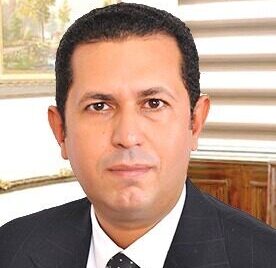The two-day G20 Summit in India discussed concerns of the developing world against the backcloth of the economic fallout from the Russian-Ukrainian War.
The summit came after the BRICS bloc accepted six new members and Indian Prime Minister Narendra Modi’s invitation to the African Union (AU) to become a permanent G20 member.
The G20 came at a time when the global economic arena is undergoing radical change in terms of the governance of world financial institutions, the disruption in supply chains and lack of energy security.
It is hoped that the outcomes of the summit will rescue the world and the developing nations from the repercussions of these global crises.
Modi sees India as the solution to supply chain worries. In his address to the recent B20 Summit (Business 20) in New Delhi, Modi said India is significantly positioned to create an “efficient and trusted” global supply chain.
The G20 Summit, also called the summit of the 20 leading rich, is the latest of a series of meetings held by the group throughout this year at the level of ministers with the ultimate goal of reaching a consensus on issues that disproportionately affect developing countries or the so-called Global South.
In a sign underscoring India’s resolve to work for the benefit of the world, India selected the lotus flower as a logo for the G20 summit this year. The logo, representing ‘one land, one family and one future’ sends a strong message that the G20 seeks to bring the world together in harmony and achieve fair growth for all.
The Indian government’s invitation for Egypt to participate as a guest country in the meetings of the G20 summit reflects the historical ties between the two countries’ leaderships, governments and peoples.
The invitation also consecrates Egypt’s regional and international status and its influential role in different global economic and political issues.
It also emanates from India’s strong belief that Cairo can interact positively in all the discussions of the G20 Summit that targets the restoration of stability in the global economy and putting it back on track to serve the interests of the developing and African countries.
Egypt’s presence at the G20 summit has been tangible in the serious and constructive co-ordination between all members without exception to formulate a unified vision to tackle the current global challenges.
Modi’s invitation to the AU to join the G20 as a permanent member shows that the rest of the world realises the importance of Africa as a source of raw materials and strategic minerals, especially those used in the manufacture of rockets, drones and communication devices.
It is expected that the expansion of BRICS group with six new members, including Egypt, Saudi Arabia and United Arab Emirates, will form new coalitions that could later lead to positive balances inside the group. But disagreements are likely to occur within the G20 in case its goals contradict with those of BRICS, which is seeking to form an alternative to Western-led economic bloc.
Mohamed Fahmy is the editor-in-chief
of The Egyptian Gazette and
Egyptian Mail newspapers






Discussion about this post